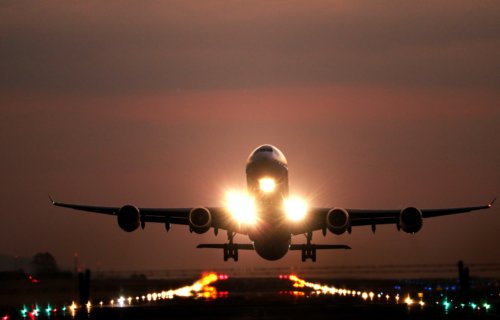BASEL, Switzerland — If you live near an airport, it may be time to start thinking about relocating — especially if you’re prone to heart problems. An airplane at night could be the last thing you hear as the noise it makes increases your chances of having a heart attack within hours of flying by, according to a study.
People who are exposed to nighttime noise pollution between 40 and 50 decibels — less than an electric toothbrush or a fridge — are 33 percent more like to suffer from heart failure, scientists from the Swiss Tropical and Public Health Institute warn.
Previous studies show that exposure to significant evening noise over a long period of time increases a person’s chances of suffering from heart failure. But the sound of an airplane at night could cause cardiovascular death within just two hours of passing by, in the same way intense emotions do, such as excitement or anger, the researchers say.
“We found that aircraft noise contributed to about 800 out of 25,000 cardiovascular deaths that occurred between 2000 and 2015 in the vicinity of Zurich airport,” says Martin Röösli, corresponding author of the study and Head of the Environmental Exposures and Health unit at the institute, in a statement. “This represents three percent of all observed cardiovascular deaths.”
Noise pollution is responsible for around 48,000 cases of ischemic heart disease across Europe every year, according to previous studies.
Airplane noise can increase risk of deadly heart issues up to 44 percent
For this research, a special case-crossover model was designed to determine whether noise exposure at the time of death was unusually high compared to other randomly chosen times. The model combined a list of all aircraft movements at Zurich Airport between 2000 and 2015 with pre-existing noise measurements, the type of aircraft, route, time of day and year.
“This study design is very useful to study acute effects of noise exposure with high day-to-day variability such as for airplane noise, given changing weather conditions or flight delays,” says co-author, Apolline Saucy, first author of the study and PhD student at Swiss TPH. “With this temporal analysis approach, we can isolate the effect of unusually high or low levels of noise on mortality from other factors. Lifestyle characteristics such as smoking or diet cannot be a bias in this study design.”
The study finds that the risk of a cardiovascular death increases by 33 percent for nighttime noise levels between 40 and 50 decibels, and 44 percent for levels above 55 decibels. In comparison, a whisper is around 30 decibels, with normal talking around 60. Noises over 85 decibels such as hairdryers, blenders and power tools, can cause permanent hearing loss over extended periods of time (30 minutes or more).
Nighttime flight bans could lower number of cardiovascular deaths
“The results are similar to the effects that emotions such as anger or excitement have on cardiovascular mortality,” says Dr. Röösli. “This is not so surprising, as we know nighttime noise causes stress and affects sleep. Associations were more pronounced for females and for people living in areas with low road and railway background noise and in buildings constructed before 1970.”
This is likely because they often have less insulation or background noise and so are more noise-prone.
Many airports enforce a flight curfew, including Gatwick, Heathrow and Zurich between 11:30 p.m. to 6:00 a.m. The findings, which were published in the European Heart Journal, suggest this cutting back on flights at night is the right thing to do.
“Based on our study results, we can deduce that this nighttime flight ban prevents additional cardiovascular deaths,” says Röösli.
SWNS writer Tom Campbell contributed to this report.
